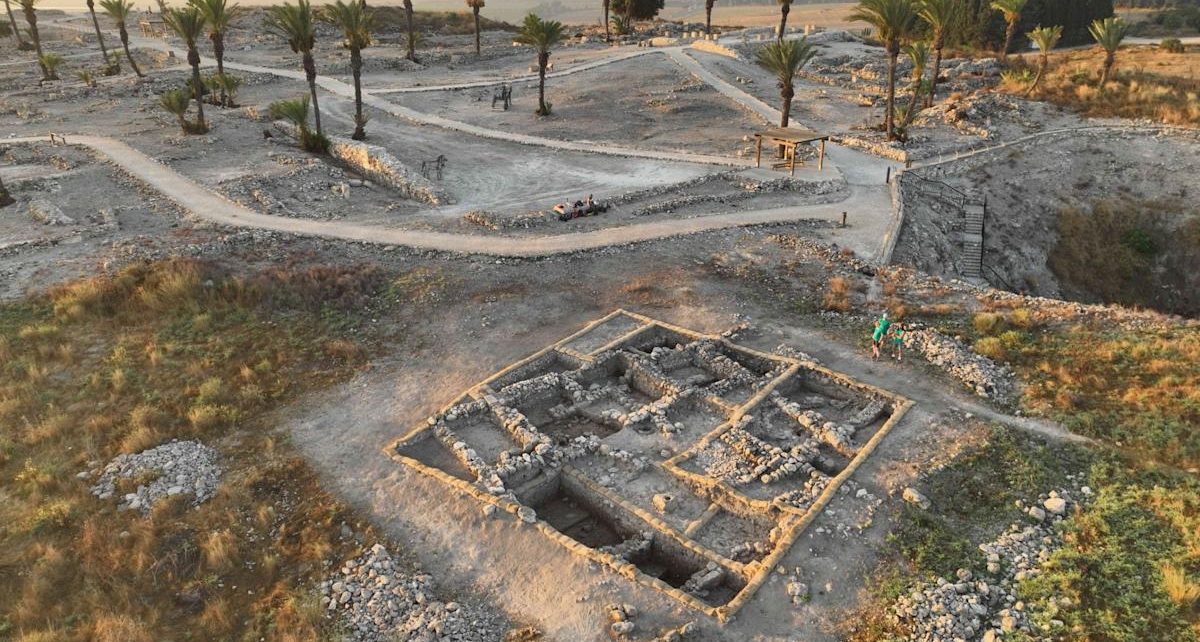A Bible story about Jesus’ ancestor Josiah, “the last good king of Judah”, could be true, according to a study.
In the Book of Revelation, the apocalyptic final clash between good and evil takes place at Armageddon before a new world is born.
Today known as Tel Megiddo, located in current-day northern Israel, the site is believed to be where the ancestor of Jesus, King Josiah, was killed by the Egyptian pharaoh Necho II, according to the Bible.
Now, excavations reveal that there was an Egyptian presence at the site during Josiah’s time, the first archaeological evidence to support the Biblical tale.
Assaf Kleiman of Ben Gurion University in Beersheba, Israel, who co-authored a study about the discoveries, said the findings were a “big surprise” for archaeologists.
He said: “Our recent excavations near the administrative quarter of Megiddo revealed the remains of a large structure dated to the late seventh century BC.
“Within this building, we have found high quantities of crude and straw-tempered pottery vessels imported from Egypt, as well as a few East Greek vessels.
“The exposure of these findings was a big surprise for our team, as these were not unearthed thus far at Megiddo.”
The Greek vessels are considered to “represent Greek mercenaries” who may have worked in the Egyptian army, according to the study’s co-author, Prof Israel Finkelstein of the University of Haifa and Tel Aviv University
He said: “The Greek pottery is usually considered as representing Greek mercenaries. From sources such as Herodotus and the Assyrian King, Ashurbanipal, we know that Greeks from Anatolia served as mercenaries in the Egyptian army.
“This scenario may be linked to the biblical account about the killing of King Josiah of Judah by Pharaoh Necho at Megiddo in 609 BC.”
Prof Israel Finkelstein at the excavation site for Tel Megiddo – Israel Finkelstein via Pen News
Josiah is described in the Bible as a religious reformer who ended the worship of any god but Yahweh (the Hebrew name for God).
He is also listed as a ancestor of Jesus in the Gospel of Matthew.
But the Old Testament gives varied accounts of his death.
Dr Finkelstein said: “The Bible recounts the death of Josiah at Megiddo in two places. He’s killed by Necho during an encounter at Megiddo in the Book of Kings, and killed in a battle with the Egyptians in the Book of Chronicles.
“Kings gives close to ‘real time’ evidence while Chronicles represents centuries-later thoughts.
“On this background, the new evidence for an Egyptian garrison, possibly with Greek mercenaries, at Megiddo in the late seventh century BC, may provide the background to the event.
“Moreover, in two places in prophetic works, Ezekiel and Jeremiah, the Bible hints that west Anatolians – Lydians – were involved in the killing of Josiah.”
The site’s Hebrew name, Har Megiddo – meaning Mount Megiddo – was rendered as Harmagedon in Greek, leading to the modern name, Armageddon.
There is debate amongst experts as to why Josiah was killed there. Some believe that his army blocked the path of the pharaoh, who was en route to Syria with his troops.
Others think he might have been summoned as a vassal and was executed for failing to pay sufficient tribute to Egypt.
It’s also been suggested Josiah’s death there created its apocalyptic reputation.
“It would make sense to place the [final] battle out there due to Israel’s history of that location,” Hope Bolinger said at Christianity.com.
Dr Kleiman, Dr Finkelstein, and their colleagues Matthew Adams and Alexander Fantalkin published their study in the Scandinavian Journal of the Old Testament.




